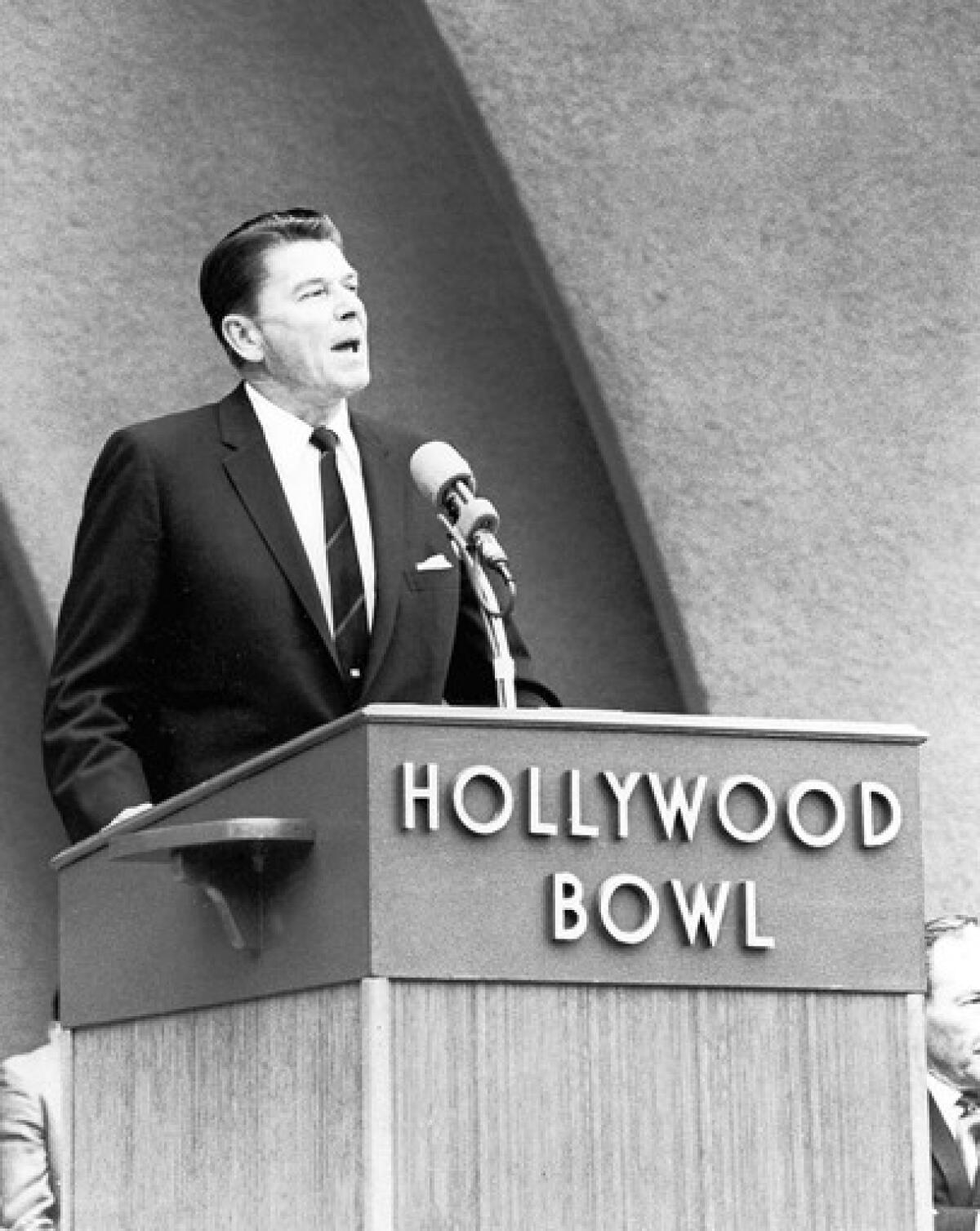Reagan the Berkeley basher

- Share via
Responding to Seth Rosenfeld’s May 10 Op-Ed article linking then-California Gov. Ronald Reagan’s harsh condemnation of student protests in the 1960s to the eventual decline of the University of California system, reader Bruce Bates wrote in a letter published Tuesday that Rosenfeld “overlooks that this very radicalization has diminished the value of a UC education.”
Bates continued: “In the 1950s, when the UC system was at its peak, students were ‘well groomed and complacent’ (to use Rosenfeld’s words). They were in college to learn, not to protest. The radicalization Reagan opposed continues to worsen, and the UC system continues to lose prestige. Maybe there’s a connection.”
Seth Rosenfeld responds:
My point was not to criticize the fact that Reagan opposed the events during the 1960s on the UC campuses, where many young people were becoming more involved in political activity, both left and right. The 1964 Free Speech Movement at UC Berkeley included students from across the political spectrum who affirmed their constitutional right to engage in political activity on campus — a right that students today take for granted. How the UC administration responded is a legitimate subject of debate.
Rather, my point was that in criticizing the protests and the administration’s handling of them, Reagan used overly broad rhetoric and unsubstantiated charges that tarnished UC as an institution, lowered the level of discourse about higher education and devalued it.
The evidence of Reagan’s UC-bashing is overwhelming. I provided a few examples in my article, and there are many more in my book, “Subversives: The FBI’s War on Student Radicals, and Reagan’s Rise to Power,” which examines Reagan’s secret alliance with FBI Director J. Edgar Hoover in stifling campus dissent.
Some others: During the 1966 gubernatorial campaign, Reagan repeatedly charged that students had engaged in an orgy at a campus dance, which was a gross exaggeration. Also during the campaign, Reagan used civil rights activist Stokely Carmichael’s upcoming speech at Berkeley to issue press releases fueling fears of possible racial violence (there was no such violence).
In fact, Reagan so ruthlessly exploited the issue of campus protest that no less than H.R. Haldeman, a conservative Republican on the university’s Board of Regents (and later of Watergate infamy) privately suggested he tone it down.
Following his election, Reagan continued such tactics. In 1968, after Robert F. Kennedy was shot at the Ambassador Hotel in Los Angeles, Reagan released a statement blaming the assassination on campus violence that he traced to the 1964 Free Speech Movement (which was actually nonviolent).
Whether one is liberal or conservative, our success as a society depends on the quality of our education. As then-UC President Clark Kerr quoted Alfred North Whitehead in his 1963 talk at Harvard, “In the conditions of modern life, the rule is absolute: The race which does not value trained intelligence is doomed … and there will be no appeal from the judgment which will be pronounced on the uneducated.”
ALSO:
Letters: It’s UC, not McDonald’s
Letters: America’s well-paid workers
Letters: Back and forth over Benghazi
More to Read
A cure for the common opinion
Get thought-provoking perspectives with our weekly newsletter.
You may occasionally receive promotional content from the Los Angeles Times.






